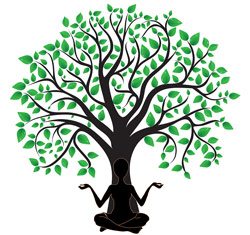
Holistic nursing focuses on the whole health of the patient, as opposed to treating the symptoms of a present illness or condition. Nurses may take the patient’s environment and mental health into consideration when they are treating a person for any reason. The holistic nursing outlook believes that the patient cannot be treated as the sum total of their symptoms, but as a person in need of overall healing.
In addition to following traditional medical practices, holistic nurses may also incorporate complementary and alternative medicine. This can include meditation, acupuncture, therapeutic massage, and dietary advice. Holistic nurses may also provide supplementation with natural herbs and remedies where they do not interfere with the patient’s current medications. What the holistic nurse offers to the patient will vary across practices, but the focus on complete and overall wellness is always the same.
When Did Holistic Nursing Start?
Featured Programs
Holistic nursing actually has quite a long history. It has its roots in the search for a new way to practice medicine in early modern Europe. This specialty area draws the bulk of its inspiration from Florence Nightingale (1820-1910), who pioneered modern nursing as it is known today. Her work during the Crimean War helped advance the field of public health and contributed to medical knowledge during an era where fatal infections and unsanitary hospital conditions were common. When did holistic nursing start?
She later went on to establish the first secular nursing school in the world in 1860 at St. Thomas’ Hospital, located in London. Nightingale also believed that healing the whole patient was the key to successful treatment. Her vision of holistic medicine inspired a whole generation of nurses and continues to do so today. The American Holistic Nurses Association (AHNA) started in 1980 as a way to advocate for this specialty nursing practice. Additionally, the holistic practice draws inspiration from the work and legacy of Florence Nightingale herself.
Holistic Nursing Today
Today, holistic nursing carries on the work of Nightingale and countless others by providing their services and expertise to countless patients around the world. In 2006, the American Nurses Association (ANA) recognized holistic nursing as a specialty area of practice, which meant that the field could be clearly defined and regulated
How Long does it take to Become a Holistic Nurse Practitioner?
Those interested in becoming holistic nurses often start with a Bachelor’s degree in nursing. They can then focus on taking courses on holistic medicine. Several mainstream schools and colleges are beginning to incorporate aspects of holistic medicine into their programs. So, many potential holistic nurses can stay at one school for the duration of their training.
After this, they must become licensed in order to practice nursing. Also, board certification in holistic nursing and medicine is by the American Holistic Nurse Certification Corporation (AHNCC).
What Do Holistic Nurses Do?
Holistic medicine complements traditional medical practices by combining treatment of both the body and mind. By looking at the larger picture, holistic nurses can provide a better experience to their patients. Additionally, they provide an opportunity to pursue lasting health and wellness.
Related: